Is A2/A2 Milk Better?
A Guide for Dexter Cattle Owners and Raw Milk Families
by Michelle Parsley, M.Photog., M.Artist, Cr.
Our Dexter herd includes A1/A1, A1/A2, and A2/A2 genetics — we breed for balance, not fads.
What Is A2/A2 Milk?
Cow’s milk proteins come in two main types: A1 beta-casein and A2 beta-casein. Each cow inherits one copy of the gene from her sire and one from her dam, which means she can produce:
-
A1/A1 milk
-
A1/A2 milk
-
A2/A2 milk
There is no visible or taste difference between them. Without genetic testing, you cannot tell the protein type by looking at the milk in the pail or on the grocery store shelf.
👉 Fact: Almost all commercial milk is A1/A2 because it comes from large herds where the milk is combined. Even if some cows are A2/A2, the milk gets mixed and sold as A1/A2 unless it is specifically labeled otherwise.
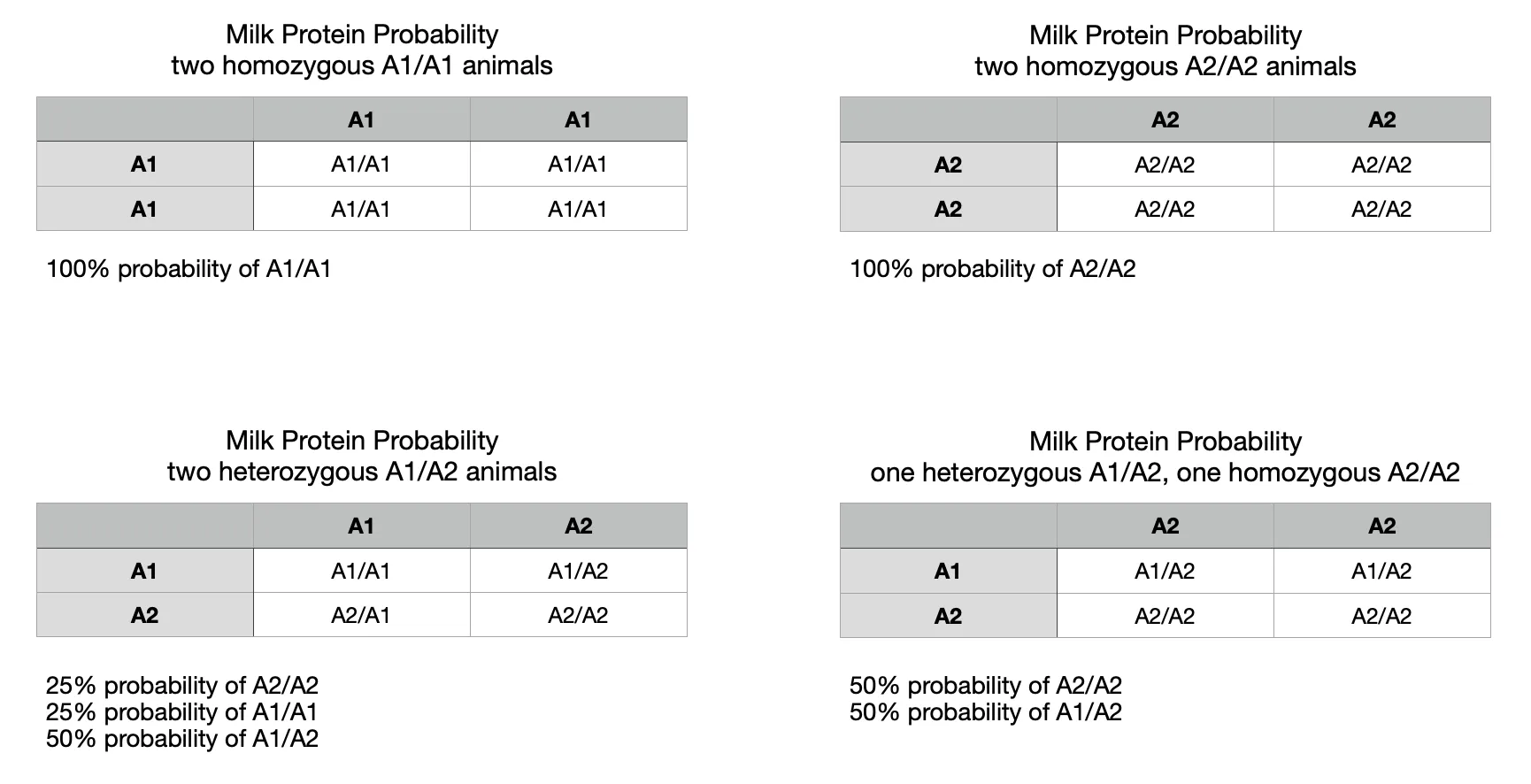
Why A2 vs A1 Matters for Digestion
Many people assume they are “lactose intolerant,” but research suggests the real culprit may sometimes be A1 beta-casein protein. When the body breaks down A1 protein, it produces a peptide (BCM-7) that some studies have linked to digestive discomfort.
This may explain why:
-
Goat’s milk is usually easier to digest (it is always A2/A2).
-
Human breast milk is exclusively A2/A2.
-
Families who struggle with store milk often tolerate A2/A2 cow’s milk without the same issues.
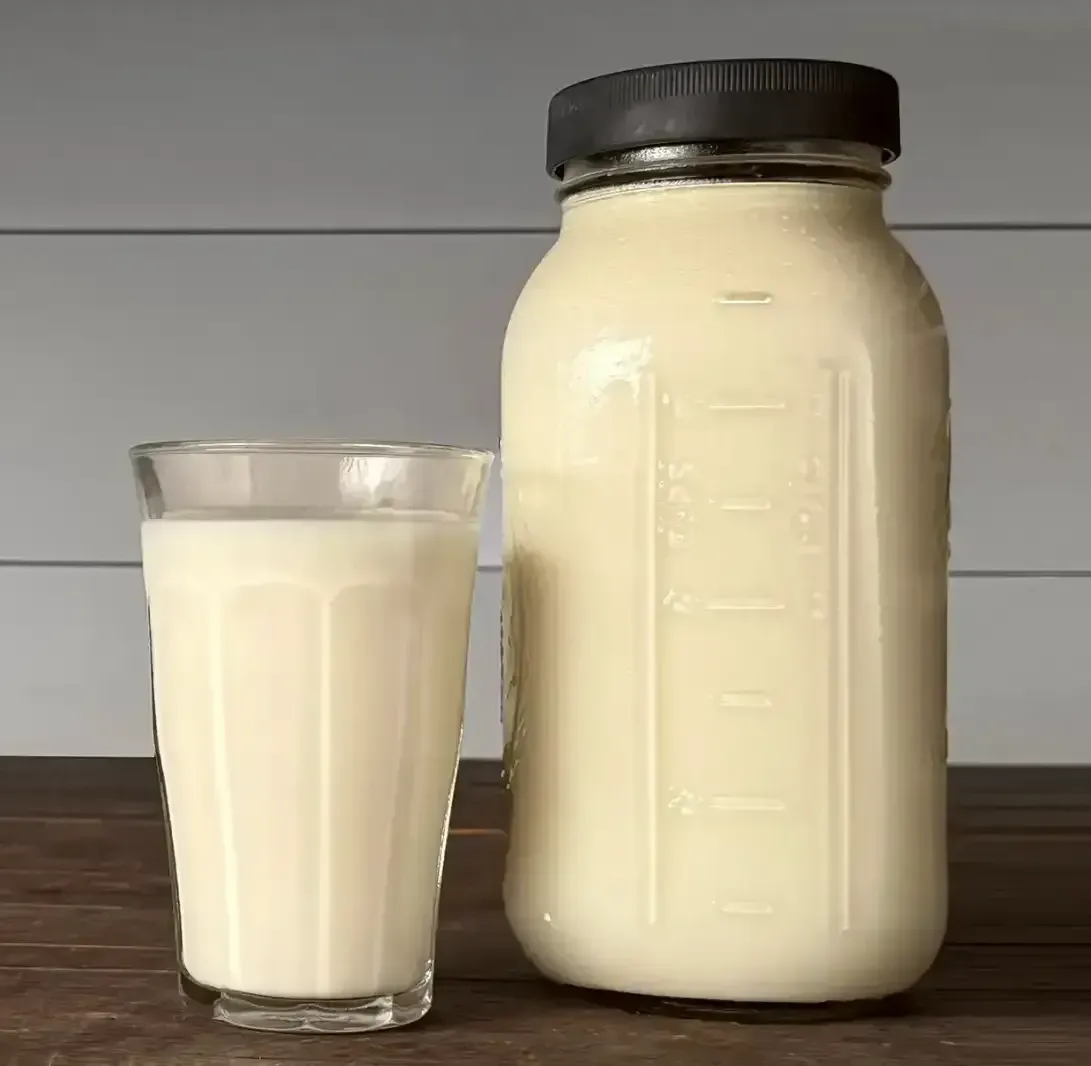
While the science is ongoing, many families find that A2/A2 milk feels gentler on the stomach than regular store-bought milk.
On our farm, most of our milk customers honestly can’t tell a difference in taste or digestion between A2/A2 and A1/A1 or A1/A2 milk. But several clinical studies suggest there may be subtle digestive benefits for some people when consuming A2/A2 milk:
-
A 2024 randomized trial in Korea found that people who were sensitive to milk experienced less abdominal pain, urgency, and gut discomfort after drinking A2 milk compared to A1/A2 milk. Read the study on PubMed Central →
-
A 2015 crossover study showed that milk containing only A2 β-casein was associated with fewer inflammation markers and faster digestive transit times than milk containing A1 β-casein. Read the study in Nutrition Journal →
At the same time, there is not yet a definitive scientific study comparing heritage breeds and modern commercial breeds under identical conditions. Breed-level data does show, however, that many heritage breeds (Jersey, Guernsey, Brown Swiss, and others) tend to carry a higher frequency of the A2 allele than Holsteins, the dominant commercial dairy breed. University of Minnesota overview →
From our own experience with Dexters, we’ve observed much the same: heritage genetics often mean greater diversity in milk proteins than you’ll find in large commercial herds.
For a broader context on the traditional diets and raw milk research that go beyond A1/A2, the Weston A. Price Foundation has compiled extensive resources on dairy, digestion, and traditional foodways.
A2/A2 Genetics in Dexter Cattle
Our Dexter herd includes all milk protein types.
Carly (left) is A1/A1, Sue (center) is A1/A2, and Tilly (right) is A2/A2. All are excellent cows in their own right.
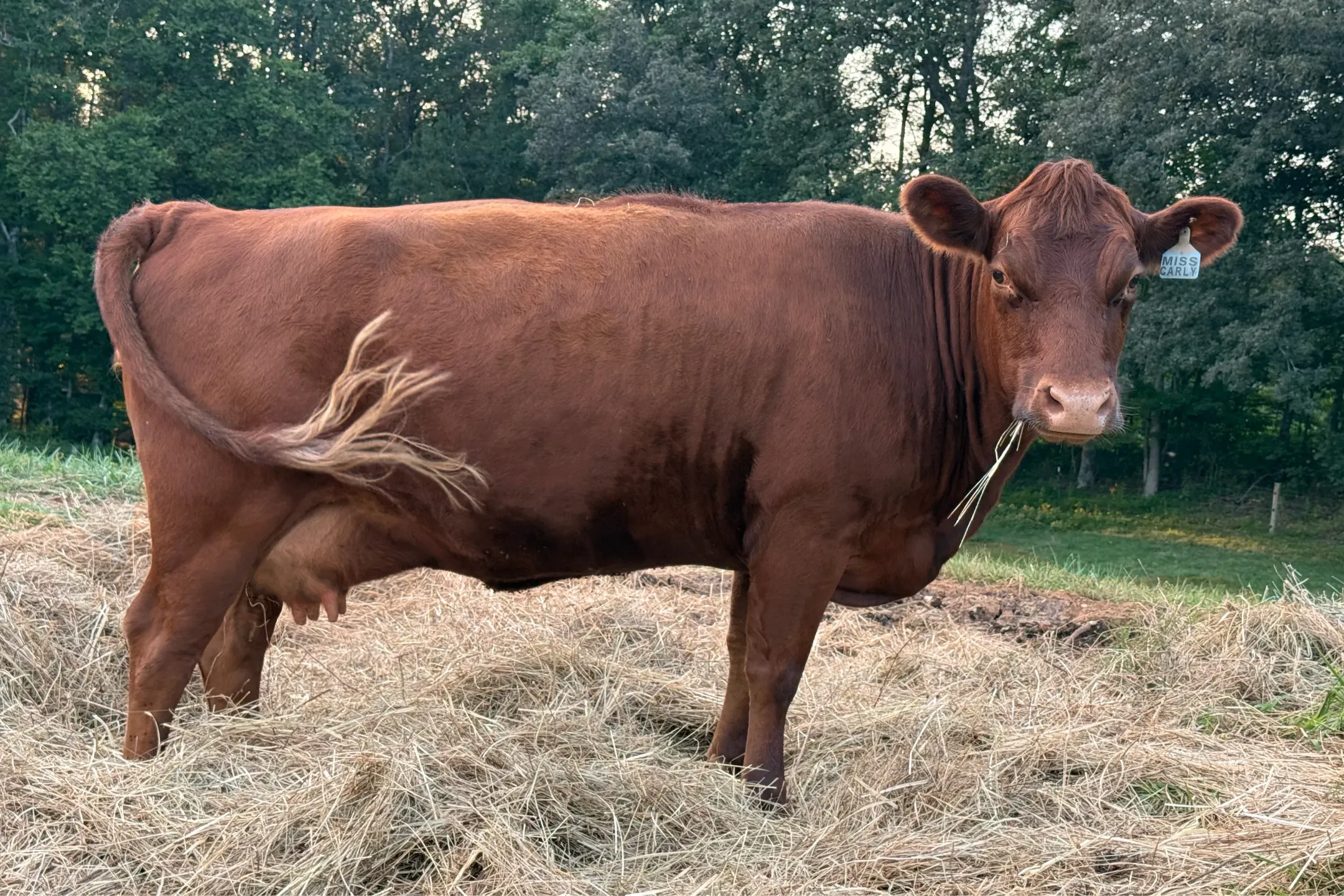
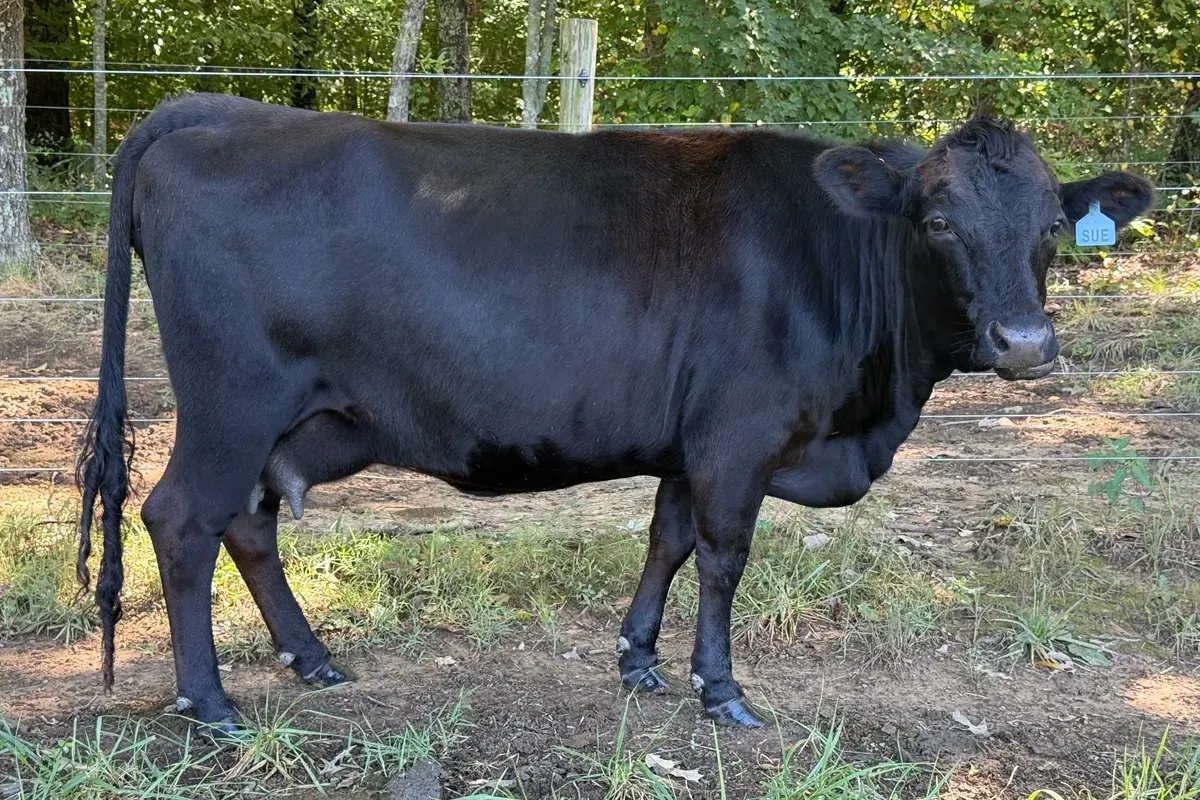
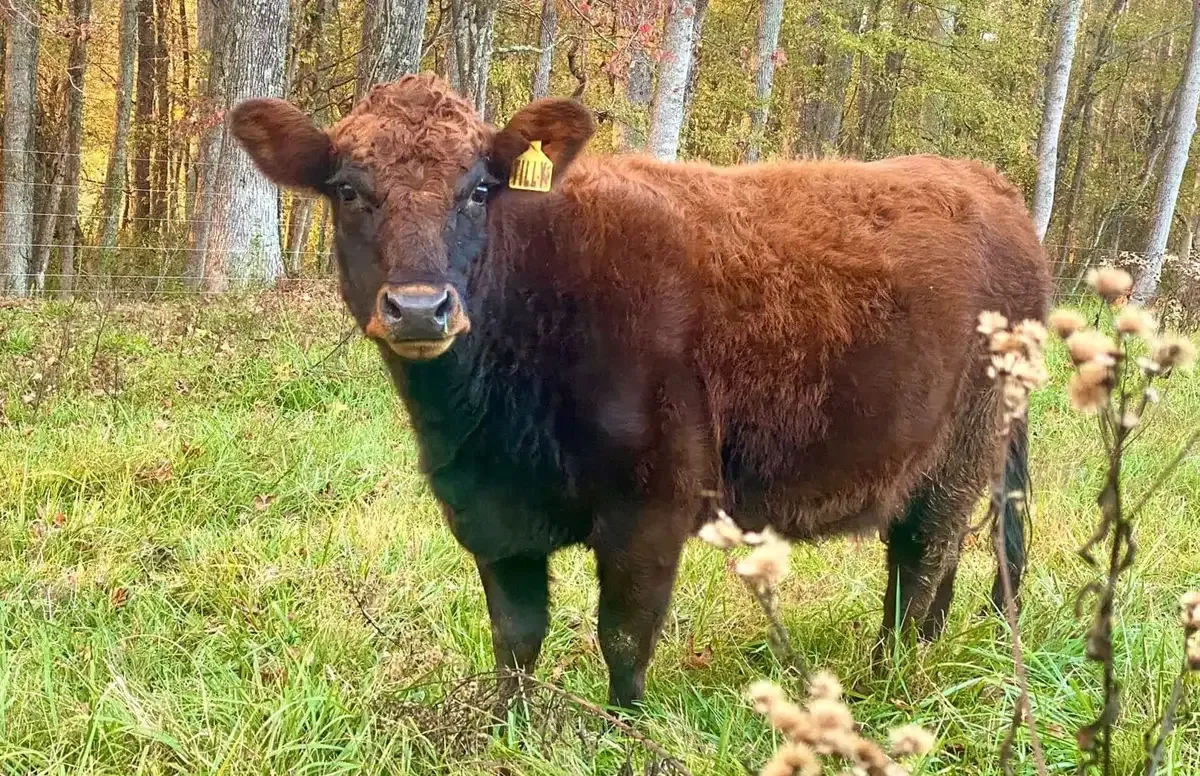
In the Dexter world, A2/A2 milk genetics are a hot topic. The photos above show our herd’s diversity: Carly (A1/A1), Sue (A1/A2), and Tilly (A2/A2). All three are excellent cows — and in truth, not one person who has tried our milk has ever reported a bad result, no matter the protein type.
That said, if you want certainty about milk protein status, here are the ways it’s determined:
-
The only way to know for sure is through genetic testing.
-
Sometimes results are “obligate” — if both sire and dam are homozygous A2/A2, the calf must also be A2/A2.
-
A simple Punnett square (above) shows how pairings produce different results.
👉 Pro tip: Always check the listed A2 status when purchasing a Dexter cow or bull. At Mountain Heritage Farm, we publish this information openly on each animal’s profile.
The A2/A2 Trap — Why We Don’t Cull A1/A2 Cows
Some breeders treat A1/A2 cows as though they’re second-rate — but that mindset is a trap.
Our Dexter cows — A1/A1, A1/A2, and A2/A2 — all grazing together. Gypsy makes a special appearance to check out the camera!
Here’s the reality:
-
On our farm, not a single person has ever had a bad result drinking milk from any of our cows — A1/A1, A1/A2, or A2/A2.
-
Genetics tell you one part of the story, but they don’t define a cow’s value as a milk producer or family cow.
If breeders were to cull every animal that wasn’t A2/A2, they’d risk losing:
-
Excellent temperaments
-
Strong fertility and conformation
-
Trained milkers who already know the stanchion and trust people
-
Genetic diversity that protects the Dexter breed long-term
At Mountain Heritage Farm, we maintain A1/A1, A1/A2, and A2/A2 Dexters. Our goal isn’t to chase trends — it’s to raise balanced, trustworthy family milk cows that perform in the real world.
Meeting the Demand for A2/A2
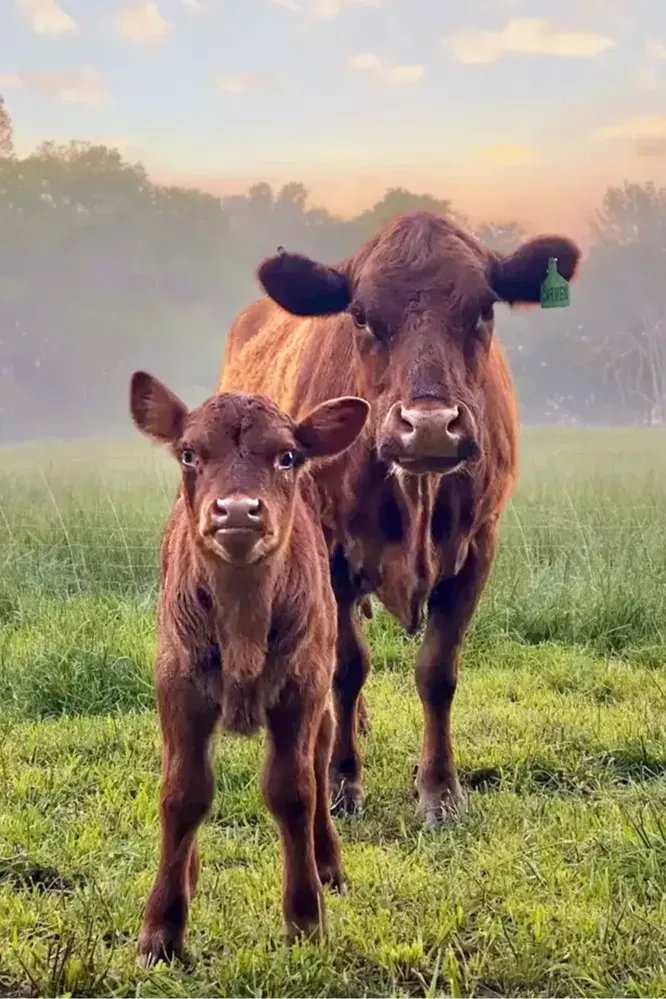
While every cow on our farm produces wholesome milk, we know that many families specifically ask for A2/A2 genetics.
-
Gypsy (the star of the video above!) happens to be A2/A2.
-
We carefully plan our breedings so that A2/A2 calves are available every year, without sacrificing the other traits that make Dexters exceptional.
-
Every animal we list for sale includes their A2 status — whether tested or obligate.
👉 Note for buyers: If both sire and dam are homozygous A2/A2, their calves are guaranteed to be A2/A2 without testing.
At Mountain Heritage Farm, we believe in transparency: you’ll always know an animal’s A2 status before you buy.
Is A2/A2 milk healthier than regular milk?
Do all Dexter cows produce A2/A2 milk?
Does A2/A2 mean a cow is “better”?
How can I test if my cow is A2/A2?
Can I buy A2/A2 Dexters from Mountain Heritage Farm?
DEXTERS FOR SALEReady to explore A2/A2 Dexter cattle for your own family milk cow? Visit our Dexters for Salepage to see current availability.
